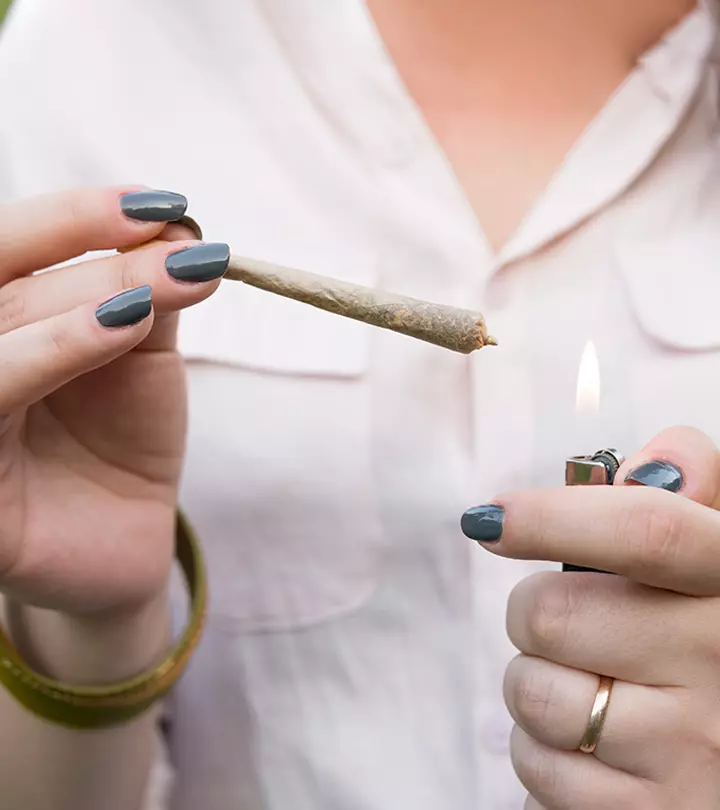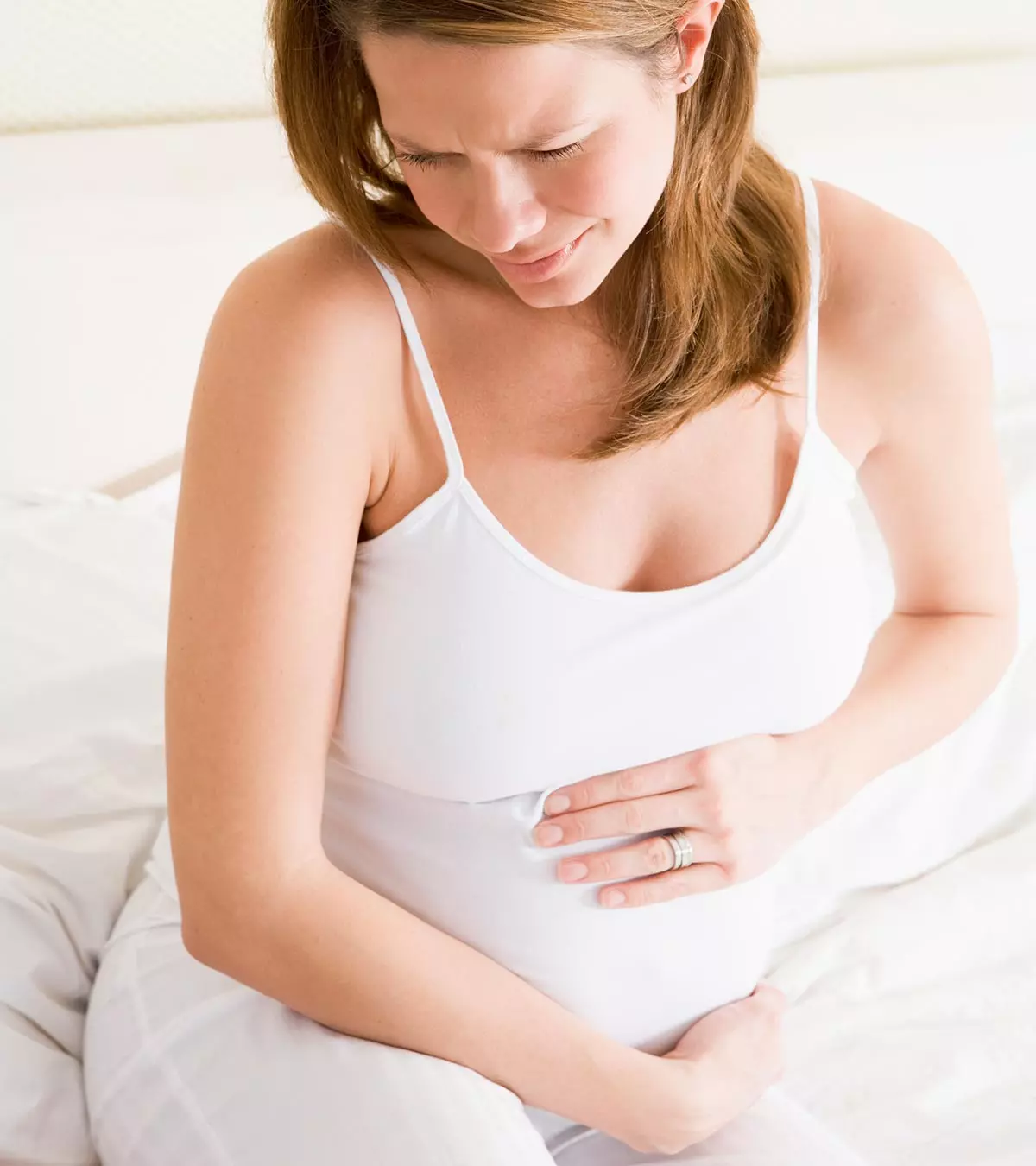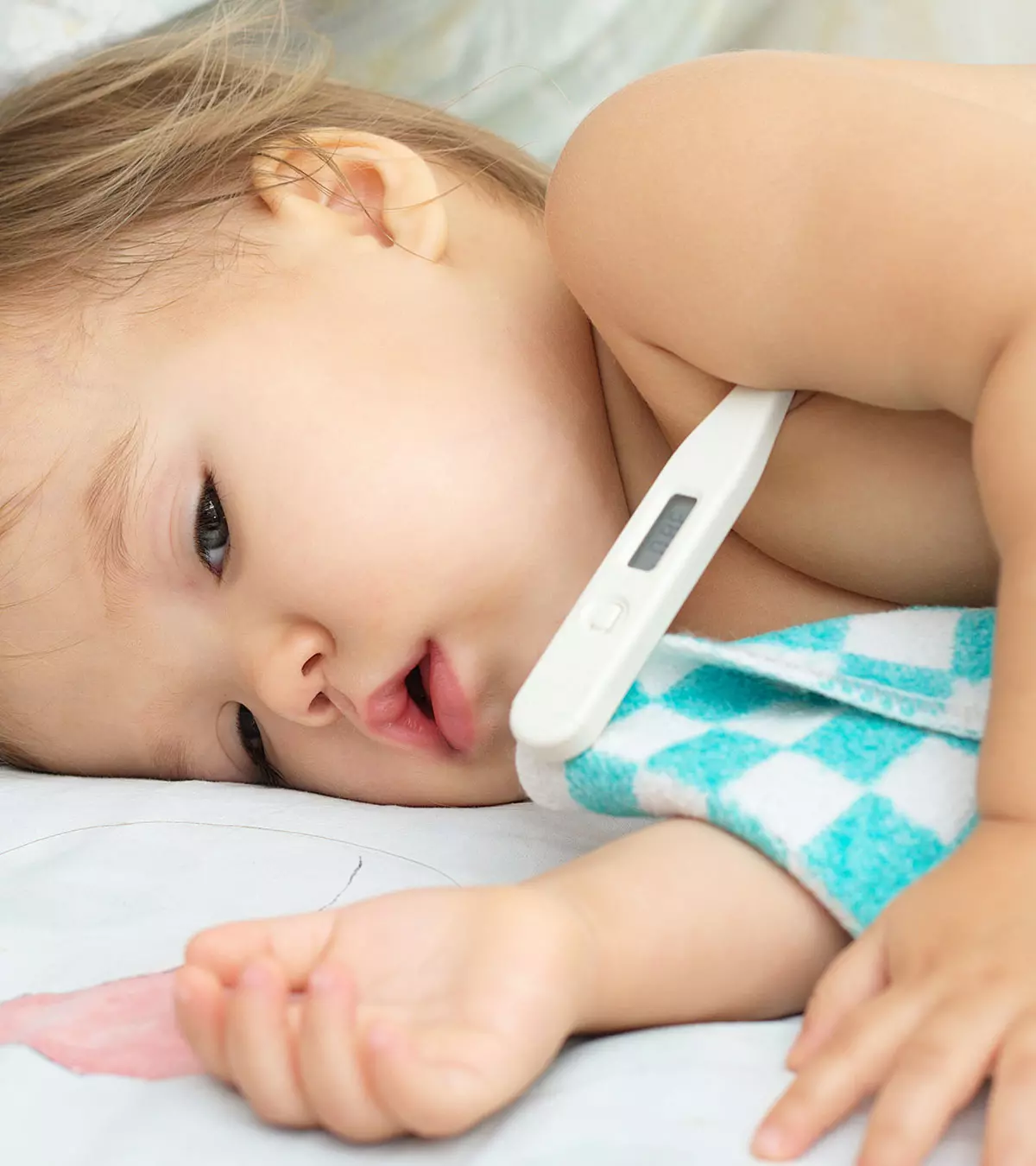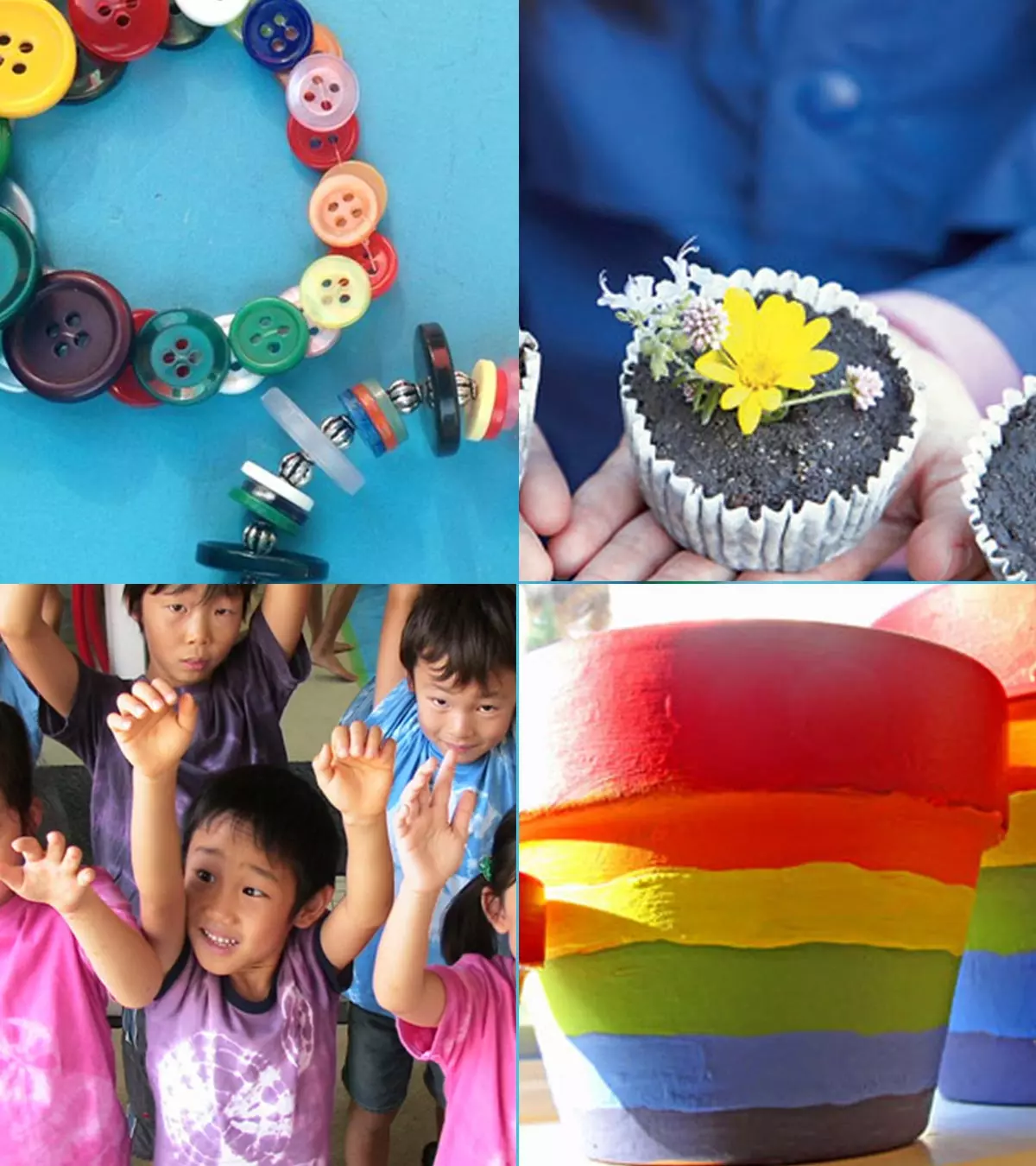

Image: Shutterstock
Indulging in all foods you crave may be problematic when lactating as most of what you consume may reach your baby through breastmilk. The caffeine present in that hot cup of tea or coffee is the reason why these beverages are so sought after. However, caffeine and breastfeeding do not go well, and you may need to cut down your daily intake of caffeine while breastfeeding. Caffeine is consumed daily in many households, but its safety in lactating mothers is still debated. It is categorized under Lactation Risk Category L2 (safer) as per the Medications and Mother’s Milk guidelines. In addition, the American Academy of Pediatrics classifies it as a ‘Maternal Medication Usually Compatible with Breastfeeding.’ Read this post as we help you understand the association between caffeine and breastfeeding and how much of it you can safely consume.
Does Caffeine Affect Breast Milk?
Yes, caffeine gets into breast milk! Once you drink a cup of coffee, the caffeine is rapidly absorbed into your blood, and diffuses passively across the epithelial layers of the mammary glands. But, very low levels (less than 1% of what is consumed) may end up in the breast milk and clinically significant amount of caffeine is not found. Caffeine appears in the milk within 15 minutes of intake, while the concentration levels would be at its peak after an hour (1).
Dr. SK Gambhir of Paras Bliss hospital in Delhi says that the effect on breast milk stays for a maximum of 120 minutes.
Are Babies Sensitive To Caffeine Intake Of Nursing Mother?
Some babies, especially those under six months of age, may be sensitive to mother’s caffeine intake. More reactions can be observed in nursing infants whose mothers entirely avoided caffeine during pregnancy (2).
Caffeine may get accumulated in breastfeeding babies if their mothers consume high amounts and can cause irritability, insomnia, and constipation. The accumulation is due to the inability of the baby’s body to break down and eliminate caffeine.
Newborns take more time to metabolize caffeine compared to older infants because of their immature liver and kidneys. Preterm or sick infants may also have problems because of their inability to metabolize caffeine.
| Age Group | Half Life (Hours) |
|---|---|
| Premature neonates (3-32 days) | 102.9 |
| Term neonates (0-4 days) | 80.0 |
| Young Infants | |
| 1-2 1/2 Months | 26.3 |
| 3-4 1/2 Months | 14.2 |
| 5-6 Months | 2.6 |
| Adults | |
| Non Smokers | 6.0 |
| Smokers | 3.5 |
*Half-Life is the time taken for a substance to become half inside a human body.
Even though babies show sensitivity to caffeine, it may disappear as they grow older. Babies will begin to process caffeine more efficiently at about three months of age (3), and it would become much easier over time. By the time the baby is nine months old, he would develop the ability to eliminate caffeine at the same rate as you do!
How Much Caffeine Can You Have While Breastfeeding?
According to Dr. SK Gambhir, a breastfeeding mother needs to limit her caffeine intake to less than 300mg a day.
An acceptable amount of caffeine while breastfeeding varies based on factors like baby’s health, age, and tolerance levels. Moreover, caffeine is diuretic and causes dehydration, and it is important to be hydrated particularly while nursing. Thus, it is advisable to limit caffeine consumption while breastfeeding with not more than two or three cups of tea, coffee, or caffeine beverage each day (4).
In the US, not more than 200mg caffeine a day is recommended for breastfeeding mothers. It comes to about two mugs of tea or one mug of filter coffee or two mugs of instant coffee, a day. NHS recommends that you have caffeine drinks occasionally, rather than every day, if your baby is young.
As per the Breastfeeding Answer Book, caffeine consumption of over 750 mg per day by nursing mothers may result in babies showing signs of caffeine stimulation, such as:
- wakefulness
- fussiness
- activeness
- alertness
- wide-eyed
- less sleep hours
- colic
Ways To Decrease Caffeine Stimulation
If you observe signs of caffeine stimulation in your baby, avoid caffeine for two to three weeks and check the difference. Reintroduce to observe if the baby shows irritability.
Few ways to decrease caffeine stimulation are:
- Limiting the consumption of caffeine while nursing
- Spreading the coffee intake over the course of the day
- Breastfeeding before or after two hours of caffeine ingestion or pumping breast milk
- Monitoring the baby’s reaction when exposed or withdrawn from caffeine consumption
- Taking few glasses of water after caffeine consumption to dilute its effect in the body
**If you consider caffeine withdrawal as a way to soothe your fussy baby, make it happen gradually. Abrupt withdrawal may give you a headache, anxiety, fatigue, and depression.
Does Caffeine Decrease Breast Milk Supply?
No research or evidence supports the myth that caffeine decreases milk supply in nursing mothers. In fact, a study indicated that caffeine does not change breast milk composition, and rather, stimulates milk production (5). Even if the decreased milk supply is observed in few cases, it could be due to the decreased nursing of fussy babies, rather than the caffeine intake.
When Should Nursing Mothers Completely Avoid Caffeine?
If you are a nursing mother having a Raynaud’s phenomenon, a circulatory disorder, avoid caffeine. The condition is due to the constriction of blood vessels, which leads to lesser blood flow. It even affects your nipples and the constriction worsens with caffeine, ending up in painful breastfeeding.
Caffeine consumption may affect a nursing mother’s let-down reflex (the milk ejection reflex from the breasts), in case of nipple vasospasm.
What Are Different Caffeine Sources?
Caffeine can be found in:
- coffee
- soft drinks
- tea
- sports, energy drinks
- chocolate
- few prescription medicines
- over-the-counter medications for cold, headache, and allergy remedies
- coffee ice cream
- herbal products containing kola nut/cola nitida, guarana/paullinea cupana, yerba mate, or green tea
Caffeine Content In Common Drinks
| Drinks | Caffeine Level (mg) |
|---|---|
| Coffee, Brewed(8 oz) | >80-135 |
| Coffee, Instant(8 oz) | >65-100 |
| Tea, iced(8 oz) | 47 |
| Tea, brewed, imported brands (avg.)(8 oz) | 60 |
| Tea, green(8 oz) | 15 |
| Hot cocoa(8 oz) | >14 |
| Dark chocolate (1 oz) | >20 mg |
| Diet Coke(12 oz) | 45.6 |
| Red Bull (8.2 oz) | >80.0 |
A nursing mother can enjoy caffeinated drinks and foods without any concern, as long as it is within a limit. In case the baby shows discomfort, it is better to seek a doctor’s advice and chalk out the caffeine consumption plans.
Frequently Asked Questions
1. What Can I Have Instead Of Caffeine Drinks?
A great option would be to have decaffeinated products like coffee free from caffeine, decaffeinated green tea, or herbal tea. You could also have flavored water with a slice of lime or lemon, semi-skimmed or skimmed milk, no-added-sugar squashes. Instead of cocoa or hot chocolate rich in caffeine, go for a hot malt drink.
2. How Many Cups Of Coffee Are Okay Each Day?
The American Academy of Pediatrics recommends not more than three cups daily, while La Leche League considers five cups of coffee while breastfeeding each day to be safe.
3. How To Limit Caffeine Intake Through Coffee Or Tea?
Opting for espresso drinks like lattes or instant coffee, which have less caffeine than the regular brewed coffee would be better. Take a tea that is brewed for less time or tea bag steeped in water for a lesser time. You can also choose decaf coffee or decaf tea.
4. Are Energy Drinks Containing Caffeine, Safer During Breastfeeding?
It is advisable to cut down on energy drinks altogether as they are loaded with caffeine.
5. Is Coffee Bean Extract Safe For Nursing Mothers?
Green coffee bean extract is a herbal, homeopathic product helpful in lowering the blood pressure and body weight. Even though no study talks about the safety of the product for a breastfeeding mother, it is important to note few points before going ahead.
It is recommended to avoid or reduce the consumption of caffeine when breastfeeding since caffeine can diffuse into breast milk and reach the baby. Excess caffeine accumulation may cause complications such as sleeplessness and constipation in babies. In addition, newborns are more sensitive to caffeine, which reduces as they grow. Limiting caffeine intake to minimal levels and not taking caffeinated beverages before feeding time could reduce the caffeine levels in breast milk. Further, avoid caffeine if you have circulation issues, such as Reynaud’s phenomenon.
Community Experiences
Join the conversation and become a part of our nurturing community! Share your stories, experiences, and insights to connect with fellow parents.
Read full bio of Charmaine Dominguez
Read full bio of Swati Patwal













